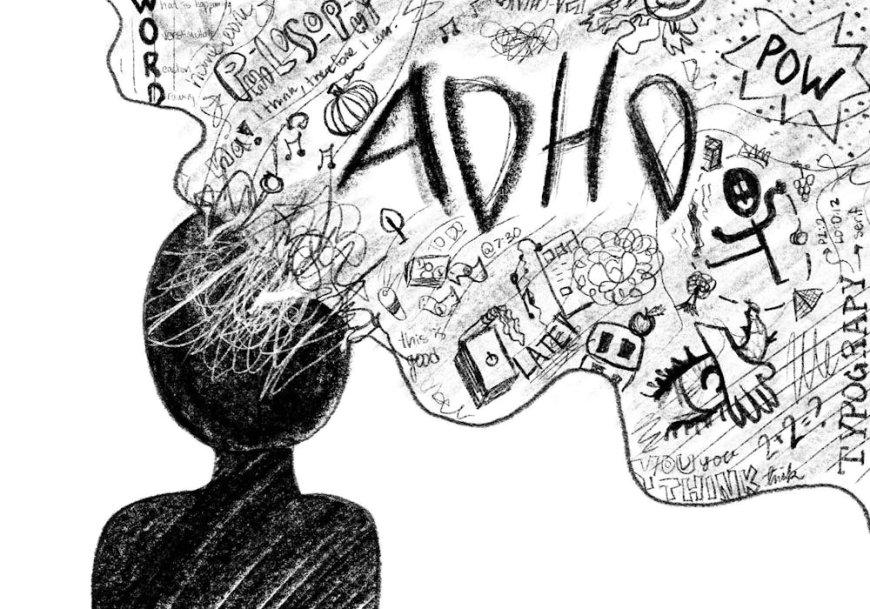Understanding the Sensory Challenges Faced by People with ADHD
Working with healthcare professionals, such as occupational therapists, psychologists, or ADHD coaches, can provide personalized strategies and support. Professionals can help identify specific sensory challenges and develop tailored interventions to address them.

Attention Deficit Hyperactivity Disorder (ADHD) is a neurodevelopmental condition that affects millions of individuals worldwide. While the hallmark symptoms of ADHD—such as inattention, hyperactivity, and impulsivity—are well-documented, another critical aspect of the disorder that often receives less attention is sensory processing challenges. Sensory processing involves how the brain interprets and responds to sensory stimuli, including sights, sounds, textures, tastes, and smells. For individuals with ADHD, sensory challenges can significantly impact daily functioning and overall quality of life. This article explores the sensory challenges faced by people with ADHD, their implications, and strategies for managing these difficulties.
Sensory Processing and ADHD
Sensory processing refers to the way the brain receives, organizes, and responds to sensory information from the environment. It plays a crucial role in how individuals interact with their surroundings and perform daily activities. For people with ADHD symptoms, sensory processing issues can manifest in various ways, including:
Sensory Overload:
Individuals with ADHD may be more sensitive to sensory stimuli, leading to sensory overload. This occurs when the brain is overwhelmed by excessive or intense sensory input, resulting in difficulties concentrating, increased stress, and irritability. For example, a busy classroom with bright lights, loud noises, and multiple visual stimuli can be particularly challenging for someone with ADHD.
Sensory Seeking:
Conversely, some individuals with ADHD may seek out sensory experiences. This can manifest as a need for constant movement, touching various objects, or engaging in activities that provide intense sensory feedback. Sensory-seeking behaviors can be a way to self-regulate or cope with under-stimulation.
Sensory Sensitivity:
People with ADHD may have heightened sensitivity to certain sensory inputs. This can include aversions to specific textures, smells, or sounds. For instance, a person with ADHD might find certain clothing fabrics irritating or be overwhelmed by strong odors, which can affect their comfort and ability to focus.
Difficulty Filtering Sensory Input:
Individuals with ADHD often struggle with filtering out irrelevant sensory information. This difficulty in selective attention means that they may be easily distracted by background noises or visual stimuli that others might ignore. This can contribute to challenges in maintaining focus on tasks.
Implications of Sensory Challenges
Sensory processing challenges can have wide-ranging implications for individuals with ADHD. Understanding these implications can provide insight into how sensory issues intersect with ADHD symptoms and impact daily life:
Academic Performance:
In educational settings, sensory challenges can affect academic performance. For example, a student who is sensitive to noise might struggle to concentrate during lessons or tests in noisy environments. Sensory overload can also lead to increased stress and decreased performance on academic tasks.
Social Interactions:
Sensory sensitivities can impact social interactions. Individuals with ADHD may find it difficult to engage in social activities due to discomfort with certain sensory stimuli. For instance, they might avoid crowded places or social gatherings that involve loud music or strong smells.
Daily Living Activities:
Sensory processing issues can affect various aspects of daily living, including personal care routines, meal times, and leisure activities. For example, a person with ADHD might have difficulty tolerating certain textures in clothing or food, leading to challenges in maintaining personal hygiene or dietary preferences.
Emotional Well-Being:
Sensory overload or discomfort can contribute to emotional challenges. The stress of dealing with overwhelming sensory stimuli can lead to irritability, anxiety, and frustration. Sensory processing issues can also impact self-esteem and confidence if individuals feel unable to manage their sensory experiences effectively.
Strategies for Managing Sensory Challenges
Managing sensory challenges involves a combination of environmental modifications, coping strategies, and self-awareness. Here are some practical strategies to help individuals with ADHD navigate sensory processing issues:
Environmental Adjustments:
Modifying the environment can help reduce sensory overload and create a more comfortable space. This might include:
Creating Quiet Zones:
Designating quiet areas or using noise-canceling headphones to minimize auditory distractions.
Adjusting Lighting:
Using soft, adjustable lighting to reduce visual stimuli and prevent glare.
Managing Clutter:
Reducing visual clutter in living and working spaces to minimize distractions.
Sensory Tools and Aids:
Utilizing sensory tools can provide comfort and help manage sensory sensitivities. Some examples include:
Fidget Toys:
Items like stress balls, fidget spinners, or textured objects can provide sensory stimulation and help with focus.
Weighted Blankets:
Weighted blankets can offer a calming effect and help with sensory regulation.
Sensory-friendly Clothing:
Choosing clothing with soft fabrics and avoiding tags or seams can reduce discomfort related to sensory sensitivities.
Mindfulness and Relaxation Techniques:
Mindfulness practices and relaxation techniques can help manage sensory overload and improve emotional regulation. Techniques such as deep breathing, progressive muscle relaxation, and mindfulness meditation can help individuals stay grounded and reduce stress.
Routine and Structure:
Establishing consistent routines and structures can help individuals with ADHD manage sensory challenges more effectively. Predictable schedules and organized environments can reduce sensory overload and provide a sense of stability.
Sensory Integration Therapy:
For individuals with significant sensory processing issues, sensory integration therapy may be beneficial. This type of therapy, conducted by an occupational therapist, involves activities designed to help individuals process and respond to sensory stimuli more effectively.
Self-Awareness and Communication:
Developing self-awareness about sensory sensitivities and communicating these needs to others can improve understanding and support. Encouraging individuals with ADHD to express their sensory preferences and boundaries can foster a more accommodating environment.
Professional Support:
Working with healthcare professionals, such as occupational therapists, psychologists, or ADHD coaches, can provide personalized strategies and support. Professionals can help identify specific sensory challenges and develop tailored interventions to address them.
Understanding and Empathy
Empathy and understanding from family members, educators, and colleagues are crucial in supporting individuals with ADHD symptoms and sensory challenges. Being aware of sensory sensitivities and making accommodations can significantly impact an individual's comfort and well-being. Open communication and a willingness to adapt can create a more supportive and inclusive environment.
Conclusion
Sensory processing challenges are an important aspect of ADHD that can significantly impact daily functioning and quality of life. By understanding the nature of sensory difficulties and their implications, individuals with ADHD, along with their families and support networks, can develop effective strategies for managing these challenges. Environmental adjustments, sensory tools, mindfulness practices, and professional support can all play a role in creating a more accommodating and supportive environment. With increased awareness and empathy, it is possible to enhance the overall well-being and success of individuals with ADHD, helping them navigate sensory challenges and thrive in their daily lives.
What's Your Reaction?














![Noots Focus Reviews [Truth Exposed 2025]!](https://news.bangboxonline.com/uploads/images/202501/image_430x256_678e3b94881a1.jpg)
![Vivalis Male Enhancement: The Must-Know Ingredients [2025 Update]](https://news.bangboxonline.com/uploads/images/202501/image_430x256_678e3b54e396c.jpg)






